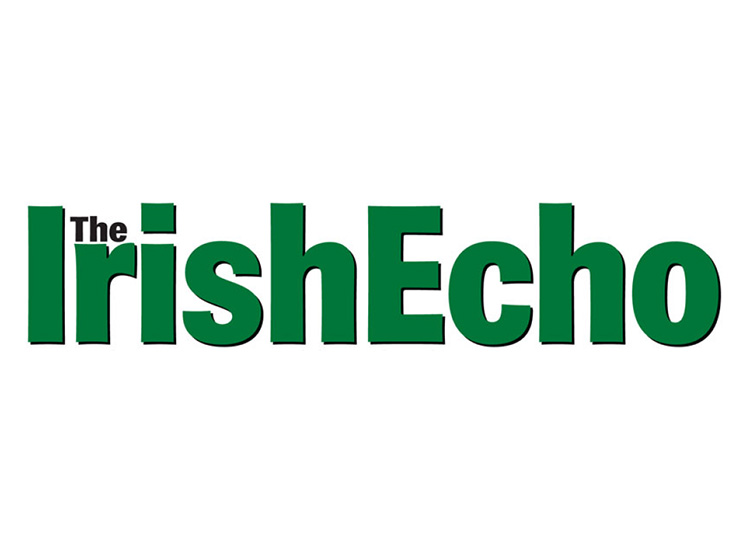[caption id="attachment_67813" align="aligncenter" width="600" caption="Boston Mayor Thomas M. Menino, Senate President Therese Murray and Northern Ireland Health Minister Edwin Poots at a press conference after the Northern Ireland Massachusetts Connection meeting in October."]
You have to put the right people in a room together.
That and hard work are what gets results, believes Therese Murray, who has served as Massachusetts' Senate president since 2007.
To that end, Murray has been to the forefront of forging economic ties not just with Northern Ireland, but also with Finland. And more recently, Catalonia has joined in and there's interest, too, in Russia, Denmark and Norway.
"It's extremely important that we go beyond our own borders. By collaborating we're going to be getting results faster," the state Senate president said. "We're all connected in the global economy."
It's hoped, for example, that forging links between the University of Ulster, at Magee, the University of Massachusetts and the University of Tampere in Finland, can help facilitate speedier delivery of advances in the fields of science and medicine.
"We began sitting around the table in Belfast and Derry; it's grown now to sitting around the table this October with over 100 government officials, researchers, business people and university representatives," Murray said in an interview with the Echo last week.
"We're thrilled that Northern Ireland is actually the beginning of this for us," she added.
In a recent speech, Murray said: "We live in a world where borders have been blurred by research, innovation and technological advancement.
"Our nations' borders and the oceans that separate us are not, and cannot, be barriers to finding solutions for the issues we all face."
And countries and regions can learn from each others' past mistakes. Murray said, for instance, Boston's gentrification process often hurt communities and left people behind.
"I'm sure that in Derry and Belfast that's not going to happen," she said.
The Northern Ireland Massachusetts Connection (NIMAC) has helped the state in areas it sees as strengths.
"After participating in the EU Connected Health Conference in Belfast over two years ago, we realized that there was an untapped opportunity to truly move forward on connected health by working together, by collaborating internationally," Murray said in a speech.
At another conference in 2010 at the Europa Hotel in Belfast, she said to her audience: "You may be asking 'why partner with Massachusetts and not California?'"
She answered her own question: "While we might be not as far along in widespread deployment as Europe, Massachusetts overall is continuing to lead the way for the United States, particularly in e-health and in life sciences."
She said the state is the gateway for the implementation and manufacturing of health care technology. "While other states are just beginning to think about utilizing these technologies, Massachusetts is already doing it," she said.
The state's worsening health problems should be motivation enough to speed up advances in this area. More than 50 percent of Massachusetts' residents are overweight or obese, conditions, Murray pointed out, that "fuel chronic illnesses such as hypertension, heart disease and diabetes."
The incidence of diabetes alone has increased by 40 percent in just a decade. The estimated drain on the economy of that group of chronic illnesses is in the tens of billions of dollars.
In other respects, Massachusetts had been doing better than most. While it has just 2.4 percent of the nation's population, it is responsible for 9.4 percent of employment growth in the past year.
In the spring, Standard and Poor's cited Massachusetts as "the only state in the nation poised to improve its credit rating in the next two years."
Murray said: "We have the educated workforce that they want and we have the lab space and the research and the hospitals, so we're a very attractive place for other countries and other companies from across the country."
While the first woman president of the Massachusetts Senate embraces the future enthusiastically, it's the past that provides her main political inspiration: Eleanor Roosevelt.
Murray has represented Plymouth and Barnstable in the state Senate since 1992, but before that resisted being tapped for electoral politics.
"I worked for other people in their campaigns," said Murray, who has a daughter, Lauren. "I never thought I'd run myself. I had been asked many times to do it."
Her uncle, Vincent Harold, was a prominent Democrat who managed some Boston wards for John F. Kennedy during his Congressional, Senate and presidential campaigns, though his one attempt on his own behalf failed.
"Maybe I got the bug from him," she said.
There was one difference: after Murray finally agreed to be a candidate, she won.









